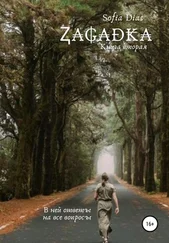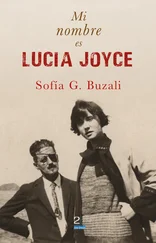“ Av maro ,” said my father, pointing to me and then to himself.
The Olondrian put one hand on his heart and made me a deep bow.
“Bow to him,” said my father. I copied the stranger ungracefully, provoking hilarious shrieks from the children who stood around us in the street. My father nodded, satisfied, and spoke to the stranger again, gesturing for him to enter the cool of the house. We followed them into the courtyard, where the stranger sat in a cane chair, his long legs stretched out in front of him, his expression genial and bemused.
He brought new air to our house: he brought the Tetchi, the Wind of Miracles. At night the brazier lit up his face as he sat in the humid courtyard. He sat with the old men, speaking to them in his tongue like a thousand fountains, casting fantastic shadows with his long and liquid hands. My father translated the old men’s questions: Was the stranger a wizard? Would he be gathering bark and leaves? Could he summon his jut ? There were shouts of laughter, the old men grinning and showing the stumps of their teeth, pressing the stranger to drink our potent homemade liquor and smoke our tobacco. He obliged them as well as he could, though the coconut liquor made him grimace and the harsh tobacco, rolled in a leaf, sent him into a fit of coughing. This pleased the old men enormously, but my father came to his rescue, explaining that allowances must be made for the northerner’s narrow ribcage. In those days we did not know if our guest were not a sort of invalid: he vastly preferred our hot date juice to the liquor the old men loved; he ate only fruit for breakfast and turned very pale at the sight of pig stomach; he rose from his afternoon sleep with a haggard look and drank far too much water. Yet his presence brought an air of excitement that filled the house like light, an air that smelled of festivals, perfume and tediet blossoms, and drew in an endless stream of curious, eager visitors, offering gifts to the stranger: yams baked in sugar, mussels in oil.
My father swelled like a gourd: he was bursting with self-importance, the only one who was able to understand the illustrious stranger. “Our guest is tired,” he would announce in a grave, dramatic tone, causing his family and visitors to retreat humbly from the courtyard. His lips wore a constant, jovial smirk. He spoke loudly in the street. He was moved to the highest circle of council and carried a staff with hawk feathers. Most wonderful of all, he seemed to have lost the capacity for anger and ignored annoyances which formerly would have caused him to stamp like a buffalo. The servants caught his mood: they made jokes and grinned at their tasks, and allowed Jom to pilfer peanuts and honeycombs from the back of the kitchen. Even my father’s wife was charmed by the northerner’s gift of raisins: she waited on him with her smile drawn tight, an Olondrian scarf in her hair.
My mother was most resistant to the festival air in the house. On the night of the stranger’s arrival she burned a bowl of dried herbs in her room: I recognized, by their acrid smoke, the leaves that ward off leopard ghosts. They were followed by pungent fumes against bats, leprosy, and falling sickness, as well as those which are said to rid human dwellings of long-toed spirits. Her face as she moved about the house was exhausted and filled with suffering, and her body was listless because of her nightly vigils by the clay bowls. My father’s wife, strutting anxiously about in her Bainish pearl earrings, lamented that my mother would shame us all with her superstition, but I think she secretly feared that the stranger was in fact some sort of ghost and that my mother would drive him away, and with him our family’s new status. “Talk to your nursemaid,” she begged me. “She is making a fool of your father. Look at her! She has a ten-o’-clock face, like somebody at a funeral.” I did try to speak to her, but she only looked at me mournfully and asked me if I was wearing a strip of charmed leather under my vest. I tried to defend the stranger as nothing more than a man, though a foreigner, but she fixed me with such a dark, steady look that my words died out in the air.
The Olondrian tried, in his clumsy way, to set my mother at ease, knowing that she was the wife of his host—but his efforts invariably failed. She avoided his shadow, kissed her fingers whenever she heard him speak, and refused his raisins, saying in horror: “They look like monkey turds!” Once, in the courtyard, I saw him approach her, at which she hurriedly knelt, as we all did in the first days, being unfamiliar with his customs. I had already seen that the northerner was disturbed by this island tradition, so I hid myself in the doorway to see how he would address my mother. He had learned to touch the servants on their heads to make them rise but seemed reluctant to do the same with my patiently kneeling mother; and indeed, as I now know, to his perplexed Olondrian mind, my mother was in an exalted position as a lady of the house. A sad comedy ensued: the northerner bowed with his hand on his heart, but my mother did not see him, as she was staring down at the ground. Evidently he wished to ask for something, but knowing nothing of our language, he had no means of making himself understood but through gestures and facial expressions. He cleared his throat and mimed the action of drinking with his long hands, but my mother, still looking down at the ground, did not see, and remained motionless. At this the Olondrian bent his long body double and mimed again, trying to catch her eye, which was fixed studiously on the flagstones. Seeing my mother’s acute distress, I emerged at this point from the doorway. My mother made her escape, and I brought our guest a clay beaker of water.
It was proof of the stranger’s tenacious spirit that, through his friendship with Jom, he convinced my mother that he was, if not of this earth, at least benevolent. In those early days it was Jom, with his plaintive voice of a twilight bird, with his small eyes of a young beast, who was at home in the stranger’s company. Jom was my mother’s child: he wore strips of leather under his clothes, iron charms on his wrists, and a small bag of sesame seeds at his waist, and she had so filled his clothes and hair with the odor of burning herbs that we thought our guest would be blown back into the sea if he went near my brother. Yet Jom was excited by the stranger and sought every chance to speak to him—of all of us, only he did not know that our guest could not understand. And the stranger always met him with a smile of genuine pleasure, clasping his hand as Olondrians do with their equals and intimates. In the green bower of the shade trees with their near-transparent blue flowers, the two spoke a language of grunt and gesture and the eloquent arching of eyebrows. Jom taught the northerner his first words in the Kideti tongue, which were “tree,” “orange,” “macaw,” “finch,” and “starling.” My brother was fascinated by the stranger’s long, graceful hands, his gold and silver rings, his earrings set with veined blue stones, and also, as we all were, by the melodies of his speech and his crocodile eyes: another of Lunre’s early words was “green.” One afternoon Lunre brought a wooden whistle from his room, brightly painted, with three small pipes like the flutes of western Estinavet. On these he could play the calling notes of the songbirds of the north: music which speaks of vineyards, olive trees, and sacred rivers. At the strange music my brother wept and asked, “Where are the birds?” The stranger did not answer him but seemed to understand: his smooth brown face was sorrowful, and he put the whistle away, brushing the leaves with his fingertips in a gesture of despair.
I do not know when my mother first joined them under the flowering trees. She must have begun by watching to see that no harm came to her son; sometimes I saw her pause, a tall pitcher balanced on her hip, staring into the trees with alarm in her lovely eyes of a black deer. Bird sounds came from the shadows, the Olondrian’s low chuckle, the sound of my brother’s voice saying patiently: “No, that one is blue.” Somehow my mother entered the trees, perhaps to protect her son—and somehow the Olondrian’s humble expression and sad eyes softened her heart. In those days she began to say: “May good luck find that unfortunate ghost! He sweats too much, and those trousers of his must keep his blood from flowing.” She no longer knelt when she met him, but smiled and nodded at his low bow, and one morning pointed firmly to her chest and said: “Kiavet.”
Читать дальше












